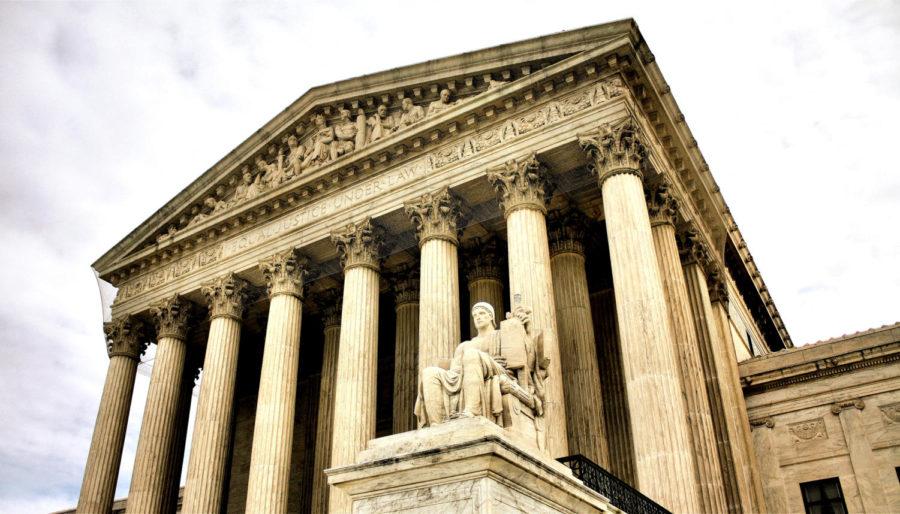Dankbar: Gay marriage fight continues, but at Supreme Court
Photo courtesy of Flickr/Phil Roeder
As with all Supreme Court decisions, the Obamacare case says nothing about whether passing the law was a good idea.
March 22, 2013
Later this month, the U.S. Supreme Court will hear oral arguments challenging the constitutionality of the Defense of Marriage Act, which denies federal recognition of same-sex marriages, and Proposition 8, which bans gay marriage in California. A decision is expected to be made late June in these cases.
In Iowa, state legislators recently proposed a bill to overturn the unanimous Iowa Supreme Court decision from 2009 that made gay marriage legal in Iowa. That decision caused three of the seven justices to lose their jobs. The bill proposes an amendment to the state Constitution. This is just the first step in the process to amend the document.
First, the proposed amendment has to pass both houses of the legislature with a simple majority (51 percent) in two consecutive assemblies. Then it has to win a simple majority by the voters in the next general election. This means the earliest that our Constitution can be amended is 2016.
The Iowa Legislature tried to pass the same amendment back in 2008 and it failed to pass.
This issue continues to be a divisive issue in our country. A poll by the Des Moines Register shows that Iowans are split on the issues; a CBS poll shows that 52 percent of Americans are in favor of gay marriage.
Regardless of public opinion, it appears as though the time has come for our country to make a decision on the legality of same-sex marriage. Due to the current social atmosphere these decisions are going to have to be very well argued and articulated. No matter who “wins,” there is going to be a fight; hopefully things will not get too out of hand.
The question of the legality of homosexual activity is a question that the Court has struggled with for years now. The first Supreme Court case questioning homosexuality was ruled on in 1986. Two other cases followed, and we have the two cases being heard this year. The Court says the changes were due to changing times as that homosexuality did not develop as a distinct category of person until the late 19th century.
There used to be many state laws that banned homosexual activity. In 1996 in Lawrence v. Texas, the Supreme Court found these laws to be unconstitutional because as individuals we have a fundamental right to privacy. This is the most current Supreme Court ruling. That is the same right that allows women to have an abortion and for people to use contraception.
After the Supreme Court has made a ruling it is unlikely that they will completely overturn their decision. But it does happen. It even happened in regards to homosexual activity. In order to maintain the legitimacy of the Court there has to be a pretty compelling reason to do so.
You have the right (and arguably the responsibility) to hold whatever opinion that you want, just be sure that you are able to articulate why you hold that position. Don’t just take whatever side the people around you take, do some research and come up with your own opinion.
Same-sex marriage is an issue that people have spent too much time arguing about. The decision is up to the Supreme Court of the United States now. You can disagree and complain all that you want, but remember that the Supreme Court is, well, supreme.
Hannah Dankbar is a senior in political science and Spanish from Johnston, Iowa.

















